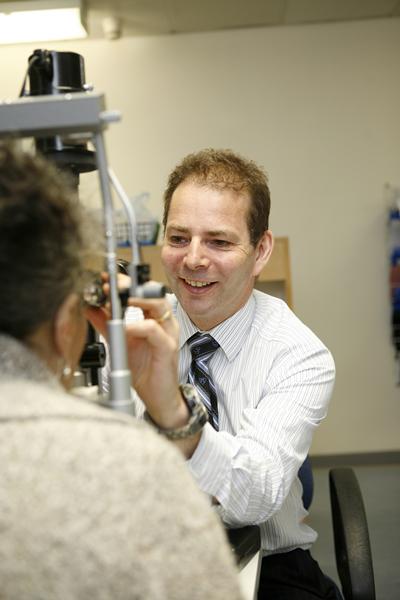Eye experts in Southampton to trial pioneering drug to prevent sight loss

Eye experts in Southampton are set to become the first in the UK to trial a pioneering drug which could prevent sight loss caused by a currently untreatable condition.
Stargardt’s disease, also known as Stargardt‘s macular dystrophy, affects the area of the retina called the macula and causes a reduction in central vision. It is the most common form of juvenile macular degeneration and affects around one in 10,000 children who suffer a gradual decline in vision which leads to blindness in adulthood.
There is currently no available treatment, with patients advised to avoid exposure to bright light and wear sunglasses to try to slow progression of the disease.
Now, Professor Andrew Lotery, a Professor of Ophthalmology at the University of Southampton and consultant ophthalmologist at University Hospital Southampton NHS Foundation Trust, is leading the UK’s participation in a £5 million study of remofuscin with colleagues at centres in the Netherlands, Italy, Germany and Norway.
The drug, which is taken orally, removes the lipid – or fat – deposits, known as lipofuscin, which build up in the back of the eye.
“This disease is one of the most common forms of inherited retinal disease and results in progressive sight loss through adolescence and into adulthood,“ explained Prof Lotery, who is based at Southampton General Hospital’s eye unit.
“There is no approved treatment available for Stargardt’s, so we are very excited about the opportunity to test remofuscin and offer these patients the hope that we may be able to stop the progression of the condition.”
Professor Carel Hoyng, specialist in inherited retinal diseases at Radboud University Medical Center in the Netherlands and the study’s principal investigator, added: “This drug’s potential goes beyond existing approaches.
“So far the attempt was to keep lipofuscin levels the same but remofuscin has been shown to actually remove existing lipofuscin in pre-clinical models and this may result in significant patient benefit.”
The study has received funding from the European Commission’s H2020 programme, while Prof Lotery's work in Southampton is supported by charity Gift of Sight, which he established in 2004 to raise money for research into the treatment of complex eye disease.
* Press release courtesy of the University Hospital Southampton NHS Foundation Trust